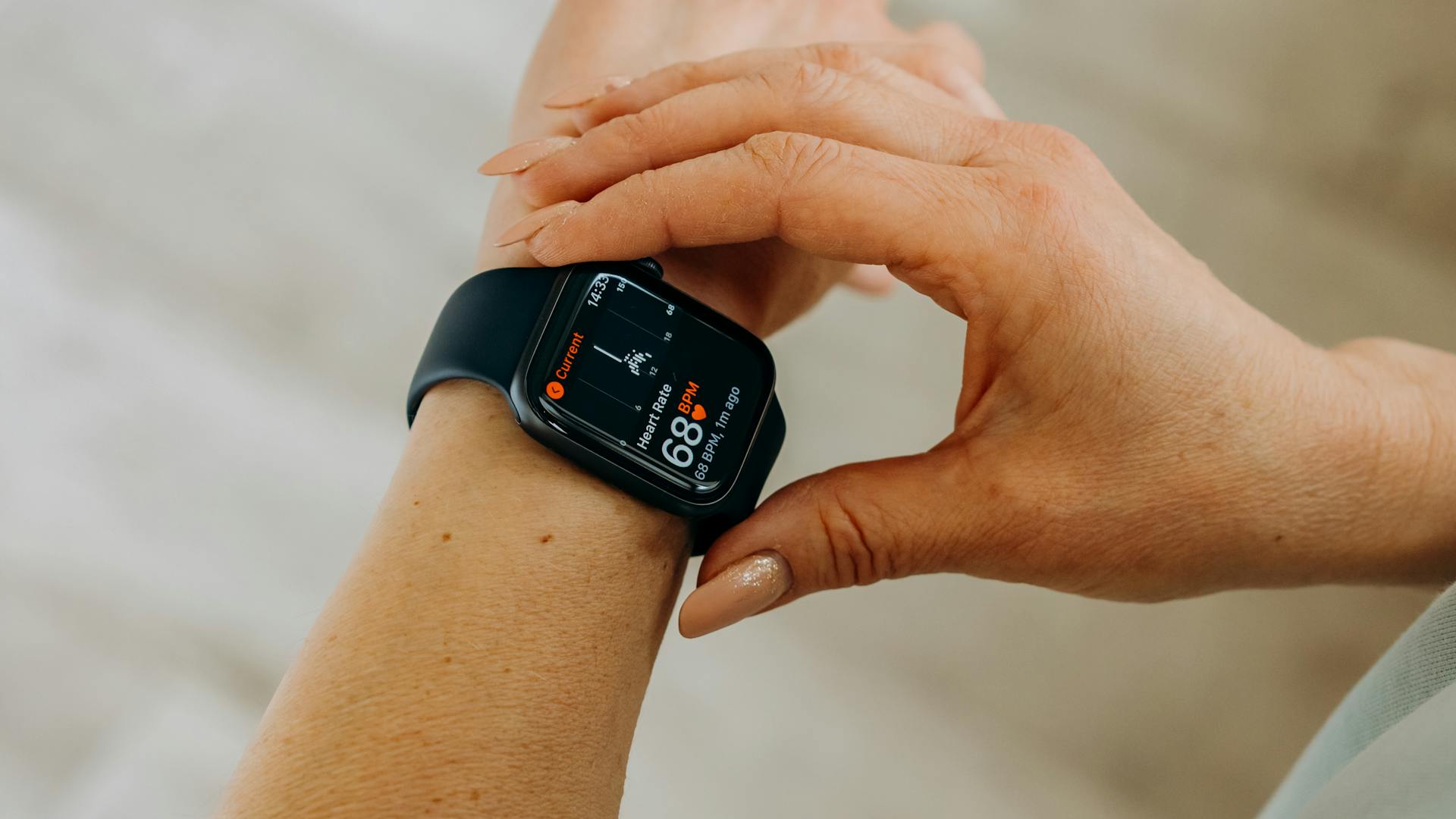Hitting a plateau while on semaglutide can feel like running into an invisible wall.
Understanding why plateaus happen is the first step in overcoming them. It’s not just about the medication; it’s about your body adapting to the changes.
4 Reasons for a Semaglutide Plateau
When you’re on a journey to lose weight with semaglutide, hitting a plateau can be discouraging. It’s important to recognize that plateaus are an almost inevitable part of the weight loss process.
However, pinpointing the reasons behind a semaglutide plateau is your first step to breaking through it:
1. Adjusting Your Caloric Intake
As you lose weight, your body requires fewer calories to maintain its new, lighter weight. This means the diet plan that initiated your weight loss might no longer create a sufficient calorie deficit for continued weight loss. It’s worth recalculating your daily calorie needs considering your current weight. Various online calculators can help you estimate your current daily calorie requirements. Adjusting your calorie intake can reignite the weight loss process.
2. Optimizing Your Macros
Just as important as how many calories you eat is where those calories come from. If you’ve been sticking strictly to calorie counting without focusing on the quality of your food, you might be missing out. Rebalancing your macronutrients—proteins, fats, and carbohydrates—can help boost your metabolism and reduce hunger. Increasing protein intake, in particular, can help preserve muscle mass, which is crucial for maintaining a higher metabolism.
3. Revamping Your Exercise Routine
Sticking to the same exercise routine for too long can lead to diminished returns. Your body becomes more efficient at performing familiar tasks, burning fewer calories over time even if you’re doing the same amount of exercise. Introducing variety and increasing the intensity of your workouts can help overcome this. Consider incorporating high-intensity interval training (HIIT), strength training, or new cardiovascular exercises you haven’t tried before.
Remember, breaking through a semaglutide plateau involves careful reevaluation and adjustment of your current habits. By fine-tuning your approach to diet and exercise, you’ll be better positioned to continue your weight loss journey.
4. Prioritizing Sleep and Stress Management
Often underestimated, sleep and stress greatly influence weight loss. Lack of sleep can disrupt hunger hormones, leading to increased appetite, while high stress can trigger emotional eating. Aiming for 7-9 hours of quality sleep per night and practicing stress-reduction techniques such as meditation, yoga, or deep-breathing exercises can support your weight loss efforts.
Implementing these changes requires discipline and time. But remember, it’s about progress, not perfection. Small, consistent adjustments can have a significant impact on overcoming a semaglutide plateau and paving the way for long-term success.
Monitoring Your Progress and Adjusting Accordingly

When you’re on a semaglutide weight loss journey, tracking your progress is more than just stepping on a scale. It involves understanding and recording various metrics that reflect your body’s changes over time. This critical step can help you break through a plateau by revealing hidden progress and areas needing adjustment.
Start by tracking your weight, but don’t stop there. Measure your body fat percentage, waist circumference, and even muscle mass to get a fuller picture of your health. Tools like smart scales and measuring tapes can become your best allies in this quest. Additionally, keeping a food diary and recording your exercise routines provides valuable data that can help pinpoint what’s working and what’s not.
Adjustments based on your findings are crucial. For example, if you notice your muscle mass increasing while your weight stays the same, it indicates you’re losing fat and gaining muscle—a positive sign of progress. However, if your measurements and weight are stagnant, it might be time to tweak your diet or intensify your workouts.
Look at your caloric intake and macronutrient balance. Sometimes, minor adjustments in these areas can reignite weight loss. Gradually increasing the intensity or frequency of your workouts can also help overcome a plateau. Remember, your body becomes more efficient over time, requiring ongoing adjustments to maintain progress.
Engage in regular check-ins with yourself, setting milestones and goals but being prepared to adapt your strategies as you evolve. This dynamic approach ensures you’re always moving forward, even when faced with challenges like a plateau. Keep a positive outlook and remember that plateaus are a normal part of the weight loss journey, signaling a time for reflection and adjustment rather than defeat.
Seeking Professional Guidance
When your weight loss journey hits a plateau, especially while on semaglutide, it’s time to consider seeking professional guidance. Healthcare professionals can offer personalized advice and strategies that are tailored to your unique situation. They’re equipped with the knowledge and tools to assess whether your plateau is due to medication efficacy, lifestyle factors, or perhaps an underlying medical condition that hasn’t been identified yet.
Consulting with a dietitian can make a significant impact. They can analyze your eating habits and suggest modifications to break through the weight loss stall. Adjustments might include altering your macronutrient intake or introducing specific foods that can help boost metabolism. Additionally, a certified fitness trainer can design a workout regimen that increases in intensity or variety, ensuring your body doesn’t get too comfortable with a specific routine, which is often a root cause of weight loss plateaus.
Endocrinologists, who specialize in hormone-related disorders, play a crucial role in addressing plateaus during semaglutide treatment. Since semaglutide works by affecting insulin secretion and appetite, an endocrinologist can evaluate whether your dose is optimal or if other hormonal imbalances are at play.
Furthermore, regular monitoring of blood markers and comprehensive health evaluations can provide insights into how your body is responding to the treatment. These assessments can uncover potential adjustments in your semaglutide regimen or additional interventions that might be necessary to kickstart weight loss again.
Remember, breaking a plateau on semaglutide is often a team effort. Involving a range of professionals who understand the multifaceted nature of weight management can provide the support and changes needed to overcome this challenge. They’ll help you navigate the complexity of your body’s responses and identify effective strategies to resume your progress.
Frequently Asked Questions
What is a weight loss plateau?
A weight loss plateau occurs when you stop losing weight despite continuing with your diet and exercise routine. It’s a common challenge many people face after initial weight loss success.
Why is professional guidance important to overcome weight loss plateaus with semaglutide?
Seeking professional guidance is crucial because healthcare providers can adjust your semaglutide dosage, recommend specific lifestyle changes, and monitor your progress to ensure safe and effective weight loss.
What lifestyle adjustments are recommended alongside semaglutide for weight loss?
To enhance the effectiveness of semaglutide, it’s recommended to make lifestyle adjustments such as increasing whole foods and lean proteins, reducing processed foods, incorporating regular exercise, prioritizing adequate sleep, and managing stress.
How can revamping your diet help in overcoming a weight loss plateau?
Revamping your diet by focusing on whole foods, reducing processed foods, and paying attention to portion sizes helps improve the metabolic benefits of semaglutide and supports further weight loss.
How does exercise contribute to breaking through a weight loss plateau?
Exercise boosts metabolism and reduces fat mass, complementing semaglutide’s effects. Regular physical activity is essential for sustainable weight loss and overall health improvement.
Why is sleep important in the weight loss journey?
Adequate sleep is vital because it helps regulate hunger hormones, improve metabolism, and reduce stress, all of which are crucial for successful weight loss and overcoming plateaus.
Can stress management impact weight loss success?
Yes, managing stress is important because stress can lead to unhealthy eating habits and reduced motivation for exercise. Techniques like meditation, deep breathing, and yoga can help manage stress and support weight loss efforts.
Conclusion
Breaking a semaglutide plateau isn’t just about adjusting your medication—it’s about transforming your lifestyle. By revamping your diet, stepping up your exercise game, and ensuring you’re getting plenty of rest, you’re setting the stage for sustainable weight loss. Remember, it’s the small, consistent changes that make a big difference in the long run.
With dedication and the right strategies, you’ll be able to overcome this hurdle and continue on your path to achieving your weight loss goals. Don’t hesitate to seek professional advice to tailor these changes to your unique needs and keep pushing forward. Your success is within reach.




